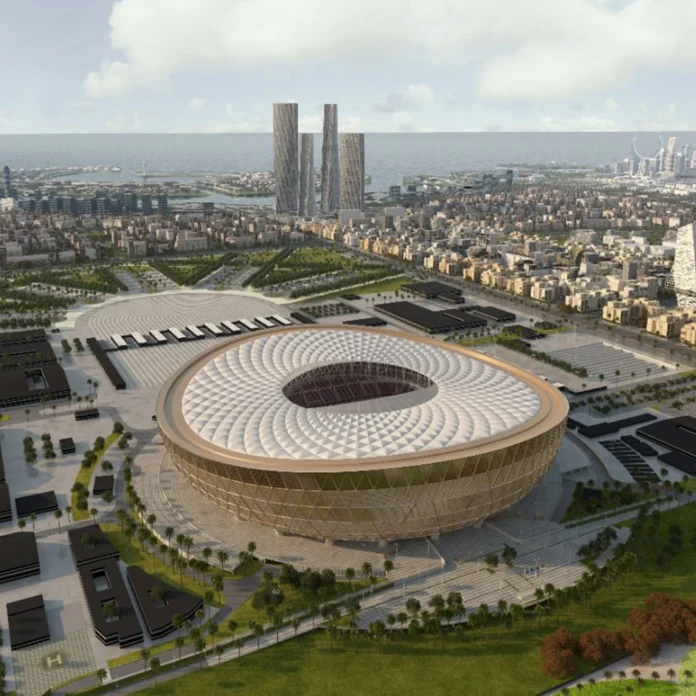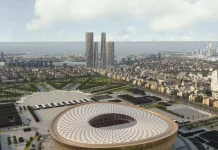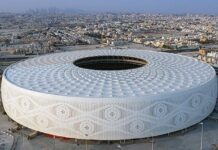Known as the world’s biggest sporting event, the FIFA World Cup has been played every four years since it kicked off in 1930.
There have been twenty-one different times that football’s holy grail has been lifted by eight different nations, in which it has been the pinnacle of the sport itself, a source of immense national pride all throughout.
The tournament itself saw numerous stadiums that served as the final venue, in which two teams met to play for the ultimate prize. It bore witness to the highs and lows, to the glory of victory and the agony of defeat.
And before the final that will be played in Lusail on December 18, we go back to the nineteen that became a living witness to the beautiful game.

- The fabled bowl of Montevideo hosts the first World Cup final, named after their country’s centennial anniversary of their existence. Here, the reigning two-time World Champions must come from two goals down to beat rivals Argentina, with the final featuring two kinds of balls being used.

Stadio Nazionale PNF – 1934
- Europe’s first World Cup saw the Azzurri lift their first title in the final that went to extra time, for the very first time. Vittorio Pozzo’s men were into knockout mode and won every game, including the final against the Czechs.

Stade Olympique de Colombes – 1938
- The site of the Chariots of Fire races became the venue of the Italians’ successful title defense, breaking French hearts along the way and eventually culminated in the final in Paris, where they stomped the Hungarians in a six-goal shootout.out.

- The fabled stadium was of the trifecta of Rio’s famous landmarks, alongside the Christ the Redeemer and the Copacabana. Although it hosted the World Cup finals twice, the glory of winning the final belonged to the visiting sides of Uruguay and Germany, which saw them beat the hosts along the way, 64 years apart.
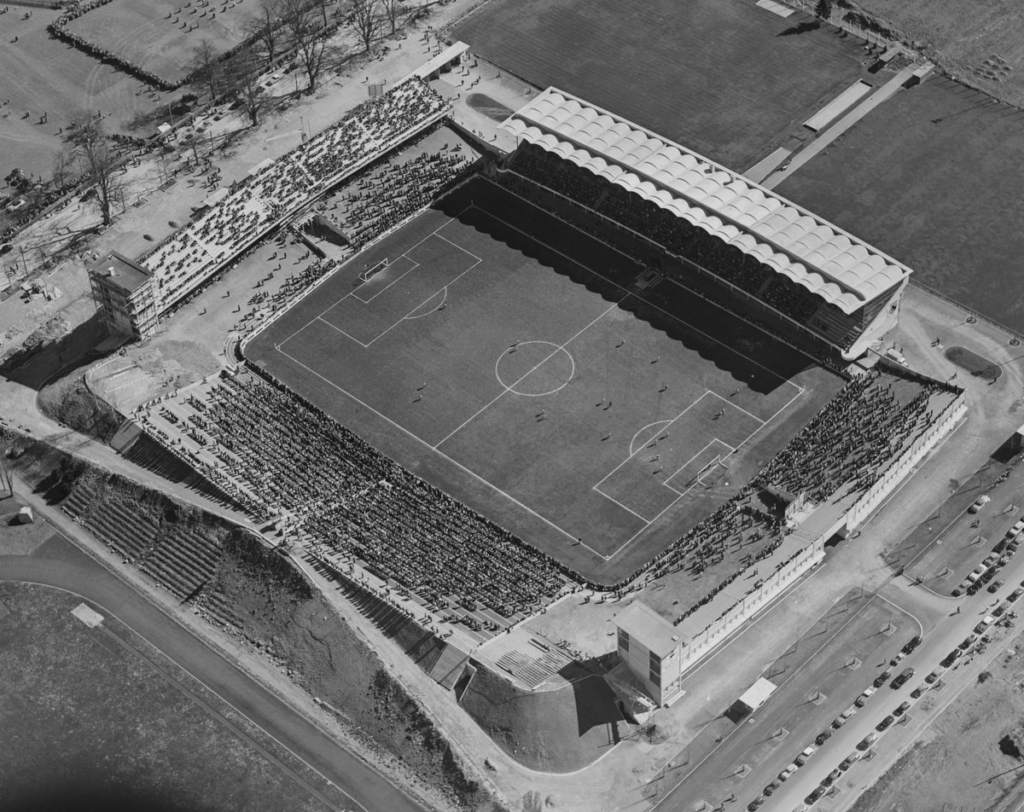
Wankdorf – 1954
- Bern’s iconic pitch bore witness to one of the tournament’s biggest upsets in the final. The West Germans claimed their first world title after coming from two goals down to sink the Mighty Magyars, with a combination of good fortune and bad weather that favored captain Fritz Walter.

Råsunda – 1958
- Stockholm’s iconic ground bore witness to the rise of Pele as a global sporting legend that began when he was 17. It also played host to the highest scoring World Cup final with Brazil finally lifting the trophy, eight years from their heartbreak in Rio.

Estadio Nacional, Santiago – 1962
- Brazil’s title defense hit a snag due to Pele’s injury. Up stepped Mane Garrincha, whose magic and trickery on his right boot hit the right notes as the right winger took the Selecao to a repeat win in the Chilean capital.
- Iconic for its Twin Towers, the crown jewel of English football was the home of the Three Lions on its lone hosting. In the fabled final, it saw Geoff Hurst scoring a hat-trick against West Germany to claim their maiden (and currently, lone) World Cup in front of the Queen.
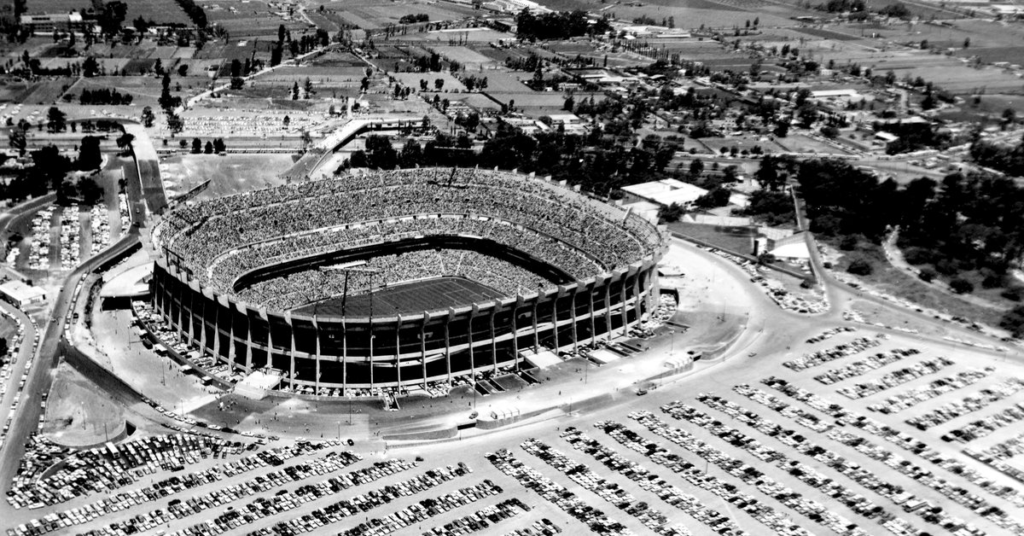
- Mexico’s colossal stadium was the symbol of North American football, where it played host to the World Cup twice. From the game of the century to Pele’s last dance, and up to Maradona’s masterpiece, the Azteca played host to countless classics on all levels.

Olympiastadion, Munich – 1974
- Already a legendary venue two years ago with the Olympics, the West German hosts overcame the audacious and enterprising Dutch side to claim their second World title. Franz Beckenbauer was led by example as he banished his past World Cup demons to outshine Johan Cruyff and their Total Football
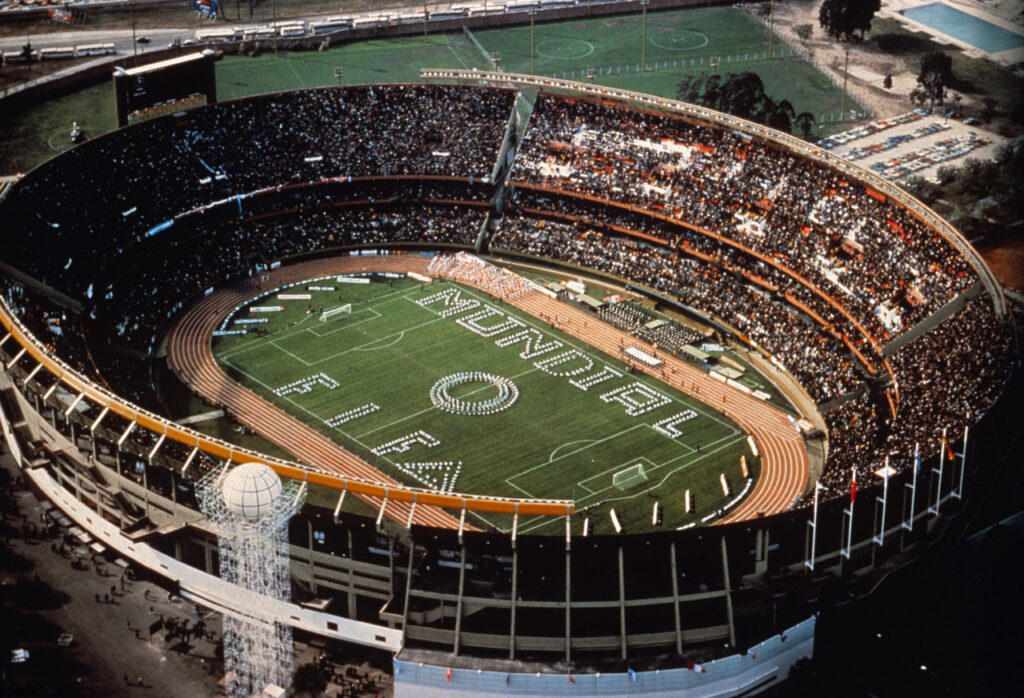
El Monumental – 1978
- River Plate’s humble abode was the stuff of legends in Argentinas successful homestand. The Albiceleste of manager Cesar Menotti was guided by skipper Daniel Passarella and striker Mario Kempes as they beat the Netherlands side still smarting from their final defeat four years ago.
Santiago Bernabeu – 1982
- Real Madrid’s home became the glorious site of Enzo Bearzot’s Italy side that won their third World Cup. Paolo Rossi came alive to lead the Azzurri in scoring, as Dino Zoff lifted the trophy as the oldest winning captain.
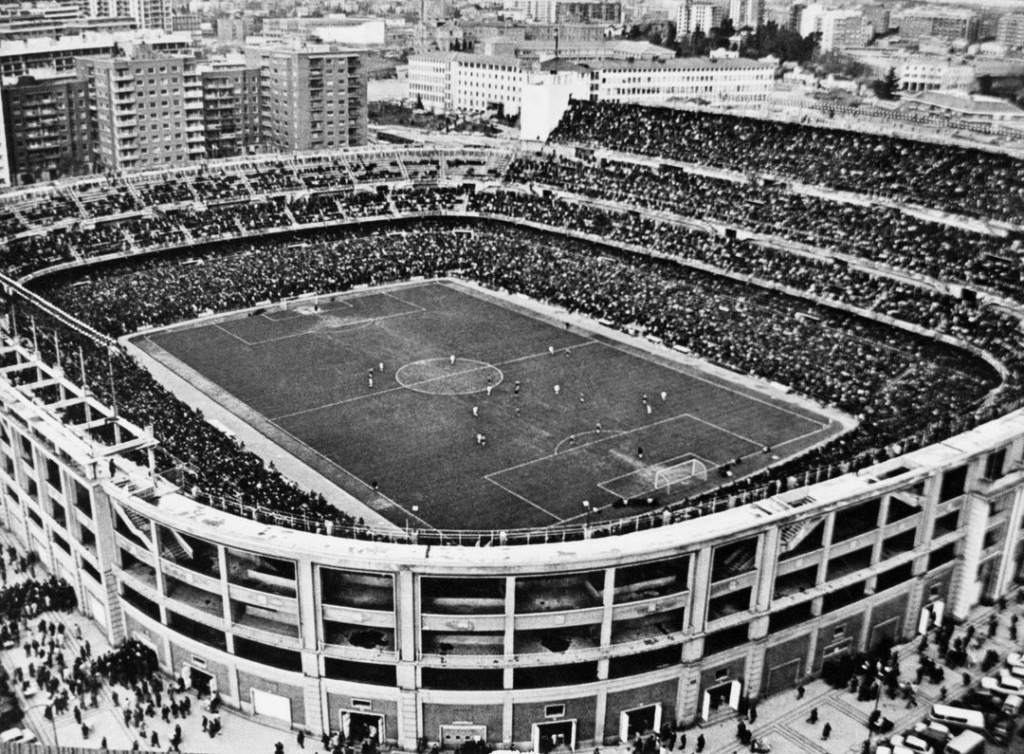
Stadio Olimpico – 1990
- Thirty-years after their Olympic hosting, Rome’s iconic stadium was rebuilt for Italy’s second hosting. It had been known to be the site of West Germany’s revenge on Argentina in the final, where a spot-kick by Andreas Brehme saw them lift their third cup.

- Pasadena’s granddad of them all. Already a legendary site of American football’s greatest games, it hosted soccer’s final and can brag about its fabled status, having hosted both the men’s and the women’s World Cup finals that boosted the stature of the sport in the United States.

Stade De France – 1998
- Hosts France routed a lethargic Brazil side that was distracted by Ronaldo’s fitness issues, thanks to a masterclass of a finale by Zinedine Zidane for their maiden World Cup. Managed by Aime Jacquet, Les Bleus showed their dominance in St. Denis by winning all of their games there.
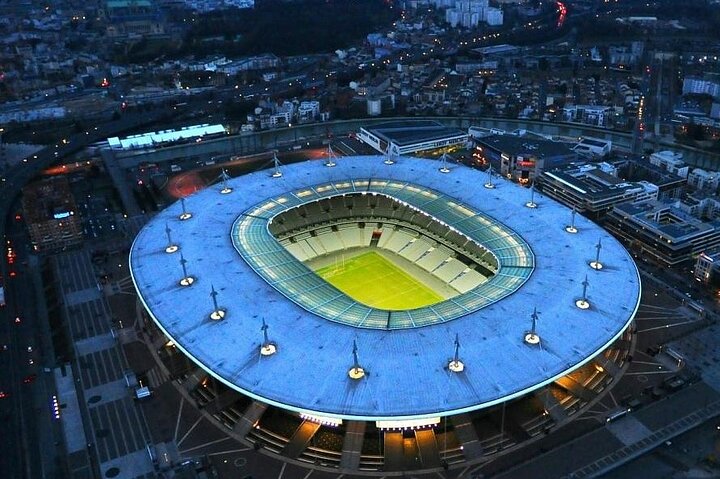
International Stadium Yokohama – 2002
- Four years since the debacle in St. Denis, Ronald regained his form in the far east. With his weird haircut all over the place, he led Brazil’s attack to claim their fifth star, winning every game they’ve played in dominant fashion, with the striker scoring twice to blank Germany in the final.

Olympiastadion, Berlin – 2006
- Seventy years on from the most polarizing Olympics in modern history, Berlin’s blue tracks became known for its finale, where Zidane’s scored his final goal and subsequently his fall from grace as Italy pounced on his headbutt to win its fourth star.
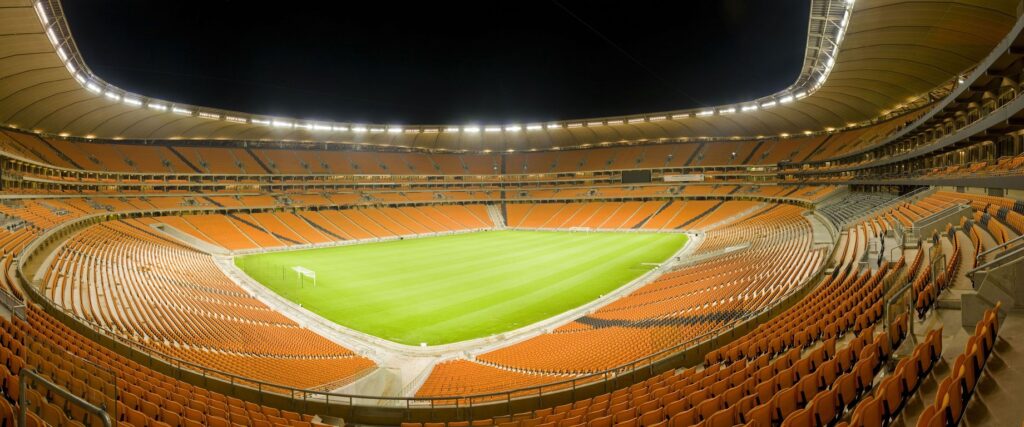
- The calabash is the African symbol of World Cup that was held in the city of gold in the South African summer. It took a late stroke magic by Andres Iniesta in extra time for Spain to win its first-ever World Cup, at the expense of the Dutch who were third time unlucky.

Luzhniki – 2018
- One of the few venues that hosted both the Olympics and the World Cup final, it became France’s glorious site of their second victory. Their second star was achieved with a goalfest of a final.

